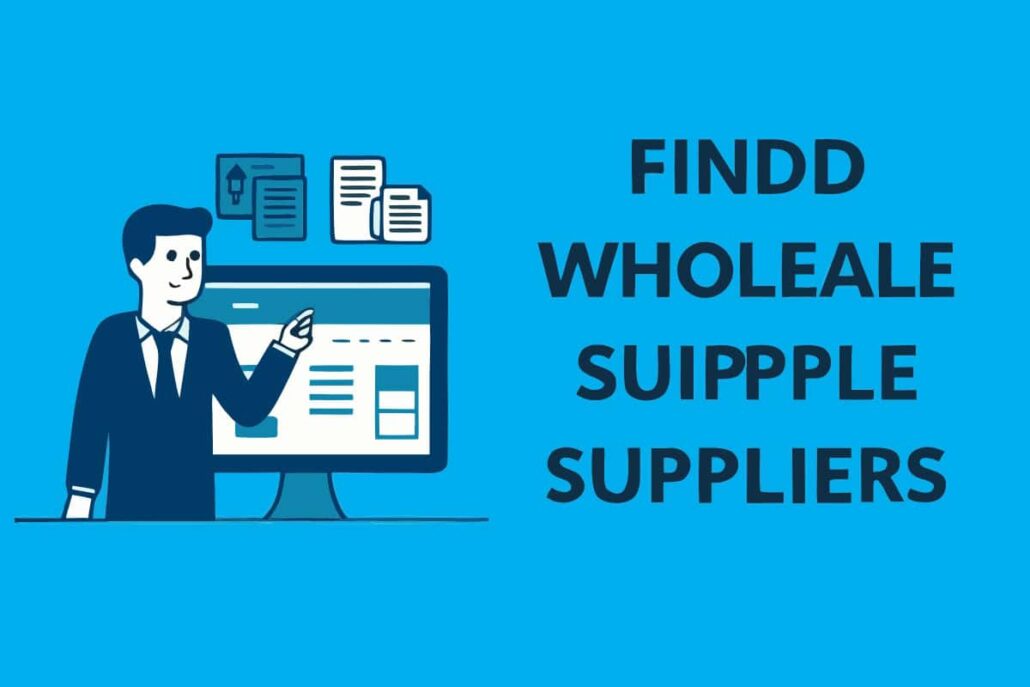
If you sell on Amazon, you already know that locking in the right wholesale supplier can either send your business soaring or leave it stuck in neutral. With countless items vying for shopper clicks, a dependable partner who serves top-quality goods at fair prices can tip the scale in your favor.
This easy-to-follow guide shares tested tips on how to spot, check, and team up with wholesalers ready to help your Amazon shop grow. Well cover places to look, steps to vet each contact, and warning signs you should never ignore.
Find Wholesale Suppliers for Amazon
Understanding Wholesale Suppliers for Amazon
Before we jump into sourcing tricks, let s clarify what wholesale suppliers are and why they matter to your Amazon game.
Wholesale suppliers sell products in bulk to retailers at lower rates than youll find on store shelves. They usually set minimum order quantities, or MOQs, and offer sliding price breaks the more you buy. For Amazon sellers, these discounts mean you can price items competitively while still keeping a healthy slice of profit.
Types of Wholesale Suppliers
Manufacturers: These companies make the goods themselves. They often give the biggest savings, but watch for high MOQs and longer shipping times.
Distributors-Middlemen that buy goods in bulk from manufacturers and pass them on to retailers. Their minimum order quantities are usually lower, but their prices tend to be higher than those straight from the factory.
Liquidators-Companies that move overstock, returned merchandise, or items that have been phased out, typically selling at deep discounts.
Import/Export Companies-Experts in overseas trade; they link you with suppliers from around the globe and handle much of the paperwork and shipping.
Where to Find Wholesale Suppliers
Online Wholesale Directories
- Alibaba-The biggest B2B site in the world, linking buyers to suppliers everywhere. Most sellers are based in China, so prices can be very tempting in almost every product category.
- Global Sources-Another top site focused on Asian vendors, especially strong in electronics, fashion, and home goods.
- ThomasNet-A wide-ranging North American directory that’s perfect for anyone wanting to find local makers and distributors.
- Wholesale Central-A free, no-frills directory listing thousands of wholesalers across many industries.
- SaleHoo-A paid service that screens suppliers and gives you extra tools for product research and market trend spotting.
Trade Shows and Industry Events
Attending trade shows is still one of the smartest ways to meet suppliers in person. You can touch and test products, haggle over prices, and start building solid, long-term relationships with potential partners right on the spot.
Major Trade Shows to Visit
- Canton Fair (China): The oldest and biggest fair, great for a wide range of goods.
- CES: Hot spot for tech, gadgets, and smart home products.
- Magic: One-stop showcase for clothing, shoes, and fashion accessories.
- Natural Products Expo: Focused on health foods, supplements, and eco-friendly items.
- Toy Fair: Place to find innovative toys before they hit shelves.
Leverage Professional Networks
Trade groups usually keep directories that point you to reliable suppliers. Joining a group tied to your niche can open doors.
LinkedIn works, too; search industry hashtags and connect with people who have leads.
Reach Out to Manufacturers Directly
Many brands hide their wholesale info, so a little sleuthing pays off. Pick products you like and email or call to ask about resale terms.
Look on their site for tabs labeled “wholesale,” “reseller,” or “dealer.” If you see none, use the main contact form.
How to Vet Potential Suppliers
Product Quality: Always ask for samples first. Consistent quality protects your ratings.
Pricing: Break down costs, from unit price to shipping and taxes. Knowing your total landed cost shows if you can make money.
Minimum Order Quantities: Check if the MOQs fit your cash flow and space. New sellers should aim for smaller lots until they grow.
Lead Times: Learn how long it takes your supplier to get an order out the door and on the truck. That info is key if you want to keep your Amazon shelves full.
Communication: Fast, clear messages are the backbone of any good working relationship. Remember, time zones and language quirks can make that tougher than it looks.
Certifications and Compliance: Always double-check that a supplier holds the right badges and papers for the laws in your target country.
Red Flags to Avoid
Unrealistic Pricing: When an offer looks way cheaper than everyone elses, quality may be rotten or you may be walking into a trap.
Poor Communication: A partner who takes days to reply, gives half answers, or acts unprofessional will likely drag your project down later.
No Physical Address: Trustworthy vendors have a real, verifiable office you can map out and visit if needed.
Pressure for Large Orders: Be careful of any seller pushing you to buy truckloads upfront before youve tested quality with a small batch.
No References: A seasoned supplier should hand you 2 or 3 contacts who can vouch for their work-no excuses.
Vetting Suppliers Thoroughly
Verification Steps
Business License Verification: Always stare at the license-make sure it matches what the rep gives you and is valid where they operate.
Financial Stability: Peek at a business credit report or ask for recent statements to see if your new partner can survive lean months.
Factory Audits: For big deals, hiring an outside firm to walk the floor and check equipment adds a layer of comfort.
Reference Checks: Never skip this part-call other customers and listen to their war stories-theyll either reassure you or raise fresh alarms.
Test Before You Invest
Always order samples first. This simple step shows you how a product looks and feels, lets you check its packaging, and reveals what to expect from the supplier’s shipping practices.
Using Third-Party Services
Trust but verify. These services add extra peace of mind:
- Alibaba Trade Assurance.
- Global Sources supplier checks.
- Independent inspection firms.
- Business credit score agencies.
Negotiating with Suppliers
Preparation Strategies
Before you talk numbers, hunt down current prices for similar items. Write down questions about payment methods, shipping choices, and return rules so nothing slips your mind.
Key Negotiation Points
- Pricing: Let order size, payment dates, and future volumes guide the final price.
- Payment Terms: Talk clear methods, credit windows, and any early-pay discounts.
- Shipping: Pin down who pays for freight, insurance, and customs on overseas orders.
- Quality Control: Agree on standards and how you’ll inspect goods.
- Exclusive Rights: If a product is truly unique, push for sole selling rights in your area.
Building Long-Term Relationships
Think partnership, not just pennies. A dependable supplier who learns your business is worth far more than one whose price cuts come with poor support.
Managing Supplier Relationships
Communication Best Practices
Set up clear channels and tell each other how quickly to reply. Touch base regularly and you’ll catch small issues before they grow into big headaches.
Performance Monitoring
Keep a close eye on these key numbers to see how your supply chain is really doing:
- Order accuracy rates
- On-time delivery scores
- Quality consistency
- Customer-service response times
Diversification Strategy
Put simply, never bet everything on one supplier. Work with at least two or three so youre not stuck if your main source hits a snag.
Legal and Compliance Considerations
Import Regulations
Know what paperwork your products need before they cross the border. That includes permits, safety stamps, and accurate labels.
Intellectual Property
Double-check that your supplier honors intellectual property rules and isnt pushing knock-offs. Selling fake goods on Amazon can shut your account down fast.
Product Liability
Think about getting product-liability insurance and be clear on what you owe as the seller of record on Amazon.
Technology Tools and Resources
Supplier Management Software
Programs like Alibabas Trade Manager, Skubana, or TradeGecko make chatting with suppliers and tracking orders a lot easier.
Product Research Tools
Jungle Scout, Helium 10, and AMZScout help you spot hot products and guess how much people want them.
Quality Control Services
Firms such as AsiaInspection, QIMA, and Bureau Veritas can send inspectors to catch problems before your items reach customers.
Common Mistakes to Avoid
- Choosing Based on Price Alone: The lowest quote often hides slow service, poor quality, or missed deadlines. Add up reliability and support before you sign.
Common Mistakes When Working with Suppliers
Inadequate Due Diligence: Never rush into a deal. Take time to check supplier reviews, references, and financial health before placing big orders or signing exclusive contracts.
Ignoring Cultural Differences: Every region has its own business etiquette. Learning these small customs prevents miscommunication and builds stronger, friendlier partnerships.
Overlooking Hidden Costs: Profit numbers can lie if you skip extras like shipping fees, customs taxes, storage charges, and possible product returns. Add these up early to see the real bottom line.
Poor Contract Terms: A good contract spells out who does what, when things go wrong, and how disputes get solved. Clear language today saves headaches tomorrow
Building a Successful Supplier Network
Your Amazon store runs best on a deep bench of dependable suppliers. Start small-two reliable partners-and add more as sales volume makes it smart.
Think partnership, not just order-to-order transactions. Suppliers who know your goals often reward you with better prices, faster shipping, and sneak peeks at new items. During busy seasons, this loyalty can make or break a business.
Talk regularly, pay on time, and act professionally. These habits build trust, turning casual vendors into long-term allies who may offer exclusive deals down the road.
Remember that wholesale sourcing is never truly finished. Markets shift, new players appear, and old contacts change. Keep watching for fresh options while nurturing the strong ties you already have.
Stick with these tips and set strict rules for picking and working with suppliers, and you will lay the groundwork for lasting success on Amazon. The hours you spend hunting for and nurturing good supplier partnerships will pay you back in stronger products, fatter margins, and steadier operations.

